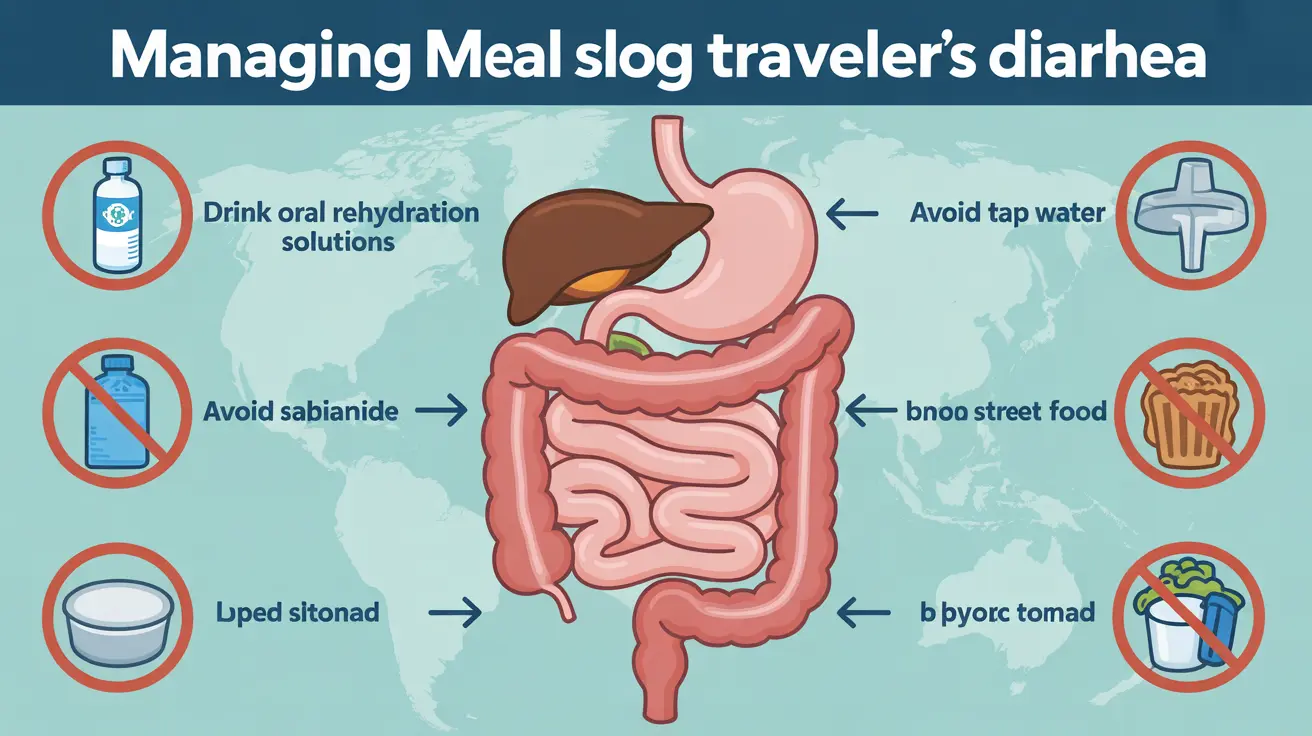Traveler's diarrhea can quickly derail your vacation or business trip, affecting up to 40% of international travelers. Understanding how to treat and prevent this common travel illness is crucial for maintaining your health and enjoying your journey. This comprehensive guide covers everything you need to know about managing traveler's diarrhea effectively.
Understanding Traveler's Diarrhea Treatment Options
The treatment approach for traveler's diarrhea depends on the severity of symptoms and underlying cause. Most cases can be managed with a combination of hydration and over-the-counter medications, while more severe cases may require prescription antibiotics.
Over-the-Counter Medications
Several readily available medications can help manage symptoms effectively:
- Bismuth subsalicylate (Pepto-Bismol, Kaopectate)
- Loperamide (Imodium)
- Oral rehydration solutions
- Probiotics
When Antibiotics Are Necessary
Antibiotics are typically reserved for moderate to severe cases of traveler's diarrhea, particularly when symptoms include high fever or bloody stools. Common prescribed antibiotics include fluoroquinolones and azithromycin, but these should only be taken under medical supervision.
Staying Hydrated During Episodes
Maintaining proper hydration is crucial when dealing with traveler's diarrhea. Focus on consuming clear fluids and electrolyte-rich beverages to prevent dehydration. Oral rehydration solutions are particularly effective at replacing lost fluids and essential minerals.
Recommended Hydration Methods
Follow these hydration guidelines for optimal recovery:
- Drink small sips of water frequently
- Use oral rehydration salts (ORS)
- Consume clear broths
- Avoid caffeine and alcohol
- Monitor urine color as an indicator of hydration status
Prevention Strategies and Food Safety
Prevention is always better than treatment when it comes to traveler's diarrhea. Understanding which foods and drinks to avoid can significantly reduce your risk of illness.
Foods and Drinks to Avoid
Be cautious with the following items:
- Tap water and ice cubes
- Raw or undercooked meats
- Unwashed fruits and vegetables
- Street food from questionable vendors
- Unpasteurized dairy products
When to Seek Medical Attention
While most cases of traveler's diarrhea resolve on their own within 3-5 days, certain symptoms warrant immediate medical attention:
- Severe abdominal pain
- High fever (over 102°F/39°C)
- Bloody or black stools
- Severe dehydration signs
- Symptoms lasting more than 5 days
Frequently Asked Questions
What is the best treatment for traveler's diarrhea, and when should antibiotics be used? The best treatment typically involves staying hydrated with oral rehydration solutions and using over-the-counter medications like loperamide or bismuth subsalicylate. Antibiotics should only be used for severe cases with high fever or bloody stools, and under medical supervision.
How can I stay hydrated and manage symptoms of traveler's diarrhea while traveling? Stay hydrated by drinking plenty of safe fluids, using oral rehydration solutions, and taking small, frequent sips. Avoid caffeine and alcohol, and monitor your urine color to ensure proper hydration.
What foods and drinks should I avoid to prevent traveler's diarrhea? Avoid tap water, ice cubes, raw or undercooked foods, unwashed fruits and vegetables, unpasteurized dairy products, and food from questionable street vendors. Stick to bottled water and thoroughly cooked foods.
Are over-the-counter medications like loperamide or bismuth subsalicylate safe and effective for traveler's diarrhea? Yes, these medications are generally safe and effective for managing mild to moderate symptoms. However, they should not be used if you have bloody diarrhea or high fever, and should not be taken for extended periods.
When should I see a doctor for traveler's diarrhea, and what are the warning signs of a serious case? Seek medical attention if you experience severe abdominal pain, high fever, bloody or black stools, signs of severe dehydration, or if symptoms persist for more than 5 days. These could indicate a more serious condition requiring immediate treatment.




